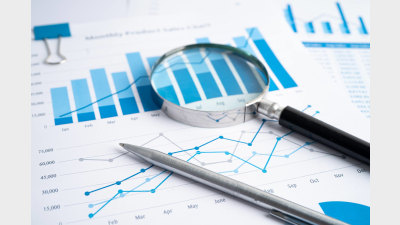Inflation pinch drives retirement budgets to record highs


With rising costs putting significant pressure on retirees’ household budgets, the amount of superannuation necessary for a comfortable retirement rose a further 1.1 per cent in the March quarter.
The comfortable retirement standard by the Association of Superannuation Funds of Australia (ASFA) grew to $70,482 per year for couples and $50,004 for singles.
This took the annual increase to 7.7 per cent, up from 7.5 in the December quarter.
“Retiree budgets have been under substantial pressure for over 18 months due to the higher cost of essential goods and services, namely food, fuel and electricity, with the latter up 15 per cent over the past year,” said Dr Martin Fahy, ASFA chief executive.
“Self-funded retirees will not be eligible for federal budget measures aimed at relieving cost-of-living pressures and despite recent adjustments to the age pension, payments continue to lag inflation.”
The ASFA Retirement Standard was a benchmark of the annual budget needed to fund either a comfortable or modest standard of living in the post-work years. It took into account the cost of everyday expenses like household goods, clothing, and health.
During the March quarter, medical and hospital services costs rose 4.2 per cent while insurance costs were up 3.5 per cent.
The price of pharmaceutical products rose by 4.5 per cent, however, ASFA noted that increase would have been even greater without the reduction in the PBS general patient co-payment applying from 1 January.
In the past quarter, the cost of fruit and vegetables rose 2.4 per cent.
The 26.2 per cent annual increase in gas prices was the highest on record, with an annual increase of 15.5 per cent for electricity.
The ASFA noted that in light of these significant cost pressures, there could be some assistance coming from superannuation legislation later this year.
“Fortunately, we are seeing a turnaround in term deposit income, and critically, the 1 July increase in the super guarantee (SG) rate to 11 per cent will put a greater number of Australians on track to achieve the dignified retirements they deserve,” Dr Fahy said.
Speaking at an adviser webinar earlier this year, Challenger’s national strategy manager, Amanda Gardner, outlined why such inflationary pressures were a real issue for retirees.
“Retirees in particular can be harder hit than others because they don’t have that rise in wages to help with the impact [of inflation],” she said.
“This can lead to retirees underspending because they’re worried about their purchasing power of income and how long that’s going to last for.”
Recommended for you
Australia’s second-largest super fund has confirmed it is expanding its presence in the UK following significant investment in the region.
A member of the super fund has approached ASIC to investigate potentially misleading or deceptive representations by UniSuper regarding the holdings of its sustainable portfolios.
The median growth fund delivered 1.9 per cent in March, adding to the “stunning” rally that has seen super funds gain 11 per cent since November.
Vanguard has affirmed its support for the current super performance test, emphasising the importance of keeping the process straightforward.













Add new comment